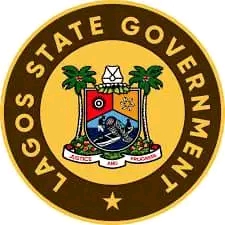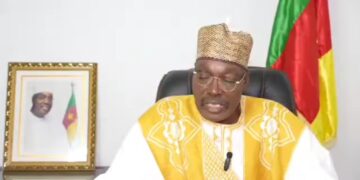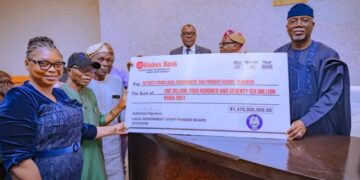![]()
The Lagos State Government has restated its zero tolerance for unapproved and illegal developments within the Trade Fair Complex, Ojo, insisting that its ongoing enforcement is aimed at ensuring public safety and sustainable urban development, not targeted at any ethnic group.
According to a statement signed by Dr. Oluyinka Olumide, the Honourable Commissioner for Physical Planning and Urban Development, and made available to newsmen on Wednesday, the State Government emphasized that the action is in line with existing planning regulations and its constitutional mandate under the Nigerian Urban and Regional Planning Act of 1992, as domesticated by the Lagos State Urban and Regional Planning and Development Law 2019.
Olumide stated that the enforcement was borne out of the need to curb the increasing presence of unsafe and disorderly structures within the complex.
He explained that the State’s primary concern is the approval status of physical developments, noting that every structure in Lagos must obtain a valid planning permit from the ministry before construction.
He said, “The Trade Fair Complex has over time degenerated into an enclave of haphazard and unsafe structures, posing grave risks to public safety and emergency response. Our enforcement is strictly in line with the law and aims at restoring order and ensuring the safety of all occupants.”
The commissioner dismissed claims by some political actors, particularly of South-East extraction, alleging ethnic bias in the government’s action. He described such insinuations as “ill-motivated and an attempt to score cheap political points at the expense of public safety.”
“It is disingenuous and divisive for anyone to resort to ethnic sensationalism whenever enforcement actions involve structures owned or occupied by individuals of Igbo extraction. The Lagos State Government will not be drawn into political grandstanding,” Olumide added.
Reeling out examples, he noted that similar enforcement and demolitions had been carried out in several parts of Lagos including Pelewura Market, Bombata Market, LSDPC Low-Cost Housing Estate Ilasan, Otumara in Ebute Metta, Alaba Rago, and Oluwole Market, many of which were predominantly occupied by Yoruba and Hausa traders.
He further pointed out that states in the South-East such as Abia, Anambra, Ebonyi, and Imo had also embarked on demolition of illegal structures for flood control and urban renewal without ethnic sentiments being attached to their actions.
“Why should that of Lagos State be different?” the commissioner queried, reiterating that the actions of the Sanwo-Olu administration are always guided by law and the principles of the T.H.E.M.E.S+ Agenda, which prioritize safety, inclusiveness, and sustainability.
The statement also announced a two-week ultimatum for all developers and occupants of structures within the Trade Fair Complex to approach the Ministry of Physical Planning and Urban Development to regularize their building approval status in accordance with existing regulations.
Dr. Olumide appealed to residents and stakeholders to support the government’s efforts in building a well-planned, safe, and sustainable Lagos.
“Our goal is to make Lagos an orderly, liveable, and resilient city for everyone, and we urge all residents to cooperate with us in achieving this vision,” he concluded.

























